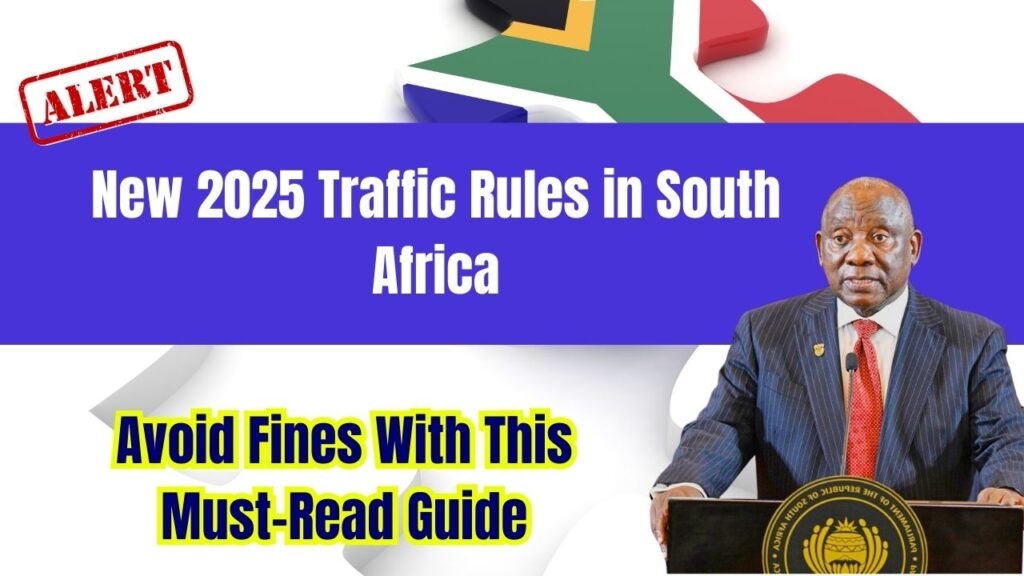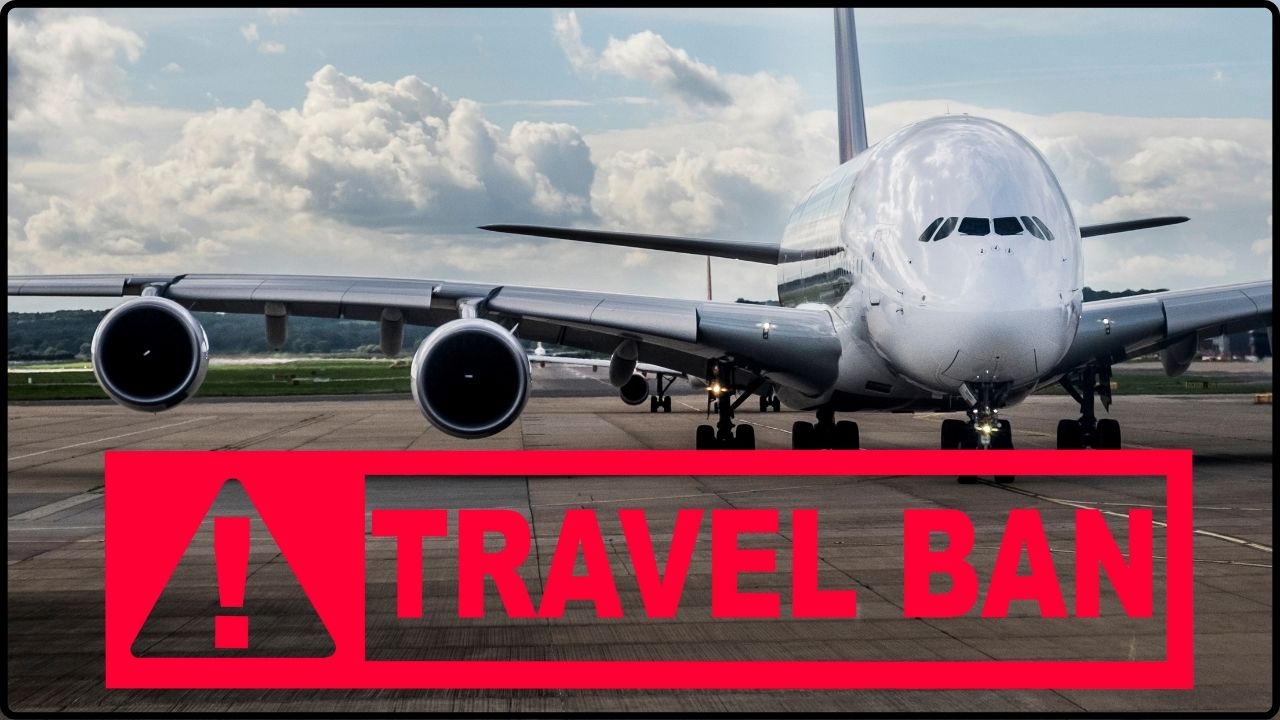New 2025 Traffic Rules in South Africa: Navigating the roads in South Africa is about to change in 2025, thanks to the new traffic rules and regulations introduced through the Administrative Adjudication of Road Traffic Offences (AARTO) system. These changes are designed not only to improve road safety but also to streamline how traffic offences are handled across the country. If you’re a driver, commuter, transport business owner, or insurance professional, this must-read guide will equip you with the knowledge needed to stay compliant, avoid fines, and keep your record clean.
The latest amendments include the rollout of a national demerit points system, the digitization of traffic fines, and substantial incentives for drivers who pay their fines early. Whether you’re a veteran on the road or a beginner with a fresh learner’s permit, it’s vital to understand how these updates will impact your daily commute and professional operations.

New 2025 Traffic Rules in South Africa
| Topic | Details |
|---|---|
| Law Name | Administrative Adjudication of Road Traffic Offences (AARTO) |
| Effective Date | September 2025 |
| Demerit Threshold | 12 points = license suspension; 15 = cancellation |
| Fine Discount | 50% off if paid within 32 days |
| Notice Method | Digital (email, SMS, WhatsApp) |
| Rehabilitation Program | Mandatory after license suspension |
| Official Website | RTIA Official Site |
The introduction of the 2025 traffic rules in South Africa under the AARTO framework is a bold step toward building a safer and more efficient traffic enforcement system. These changes are designed to ensure fairness, accountability, and easier management of traffic offences through modern technology and structured procedures.
Understanding how the demerit points, digital fine notifications, and early payment discounts work will empower you to make informed decisions behind the wheel. Whether you’re driving to school, managing a delivery fleet, or insuring hundreds of vehicles, staying up to date with these changes is not just wise—it’s necessary.
What is AARTO and Why It Matters
The AARTO system is a government-led initiative to address the inefficiencies in how traffic violations are currently managed. Rather than going through the courts for minor traffic offences, the AARTO system provides an administrative alternative. This makes enforcement faster and more consistent.
The underlying philosophy of AARTO is based on accountability and behavior change. Drivers are encouraged to maintain safe driving habits while being held responsible through a transparent and fair points system. AARTO also aims to decongest South African courts and redirect focus to more serious criminal matters.
With this system, the intention is not just to punish offenders but to educate and rehabilitate drivers who frequently commit infractions. AARTO introduces the concept of proactive compliance, where drivers are regularly updated on their standing and given opportunities to correct behavior before facing harsher penalties.
How the Demerit Points System Works
From September 2025, traffic violations will no longer be treated as isolated events. Instead, they will contribute to an accumulating demerit points score, tied to a driver’s license.
- Each infringement will be assigned a specific number of points depending on its severity.
- Accumulating 12 points results in the suspension of your driver’s license for 3 months.
- For every point above 12, an additional 3-month suspension is added.
- If a driver reaches 15 points, their license can be cancelled entirely.
- Points can be removed if a driver maintains a clean record for three consecutive months.
Common Infractions and Points:
| Offence | Fine | Points |
|---|---|---|
| Speeding 11–15 km/h over | R250 | 0 |
| Speeding 36–40 km/h over | R1,500 | 5 |
| Speeding more than 40 km/h over limit | Court | 6 |
| Driving under the influence | Court | 6 |
| No valid driver’s license | R1,250 | 4 |
| Driving without vehicle insurance | R750 | 2 |
| Not wearing a seatbelt | R250 | 0 |
| Cell phone use while driving | R500 | 1 |
| Hit and run | Court | 6 |
| Reckless driving | R2,000 | 6 |
Visit the official AARTO offence schedule for a detailed list of all infractions.
Electronic Notices: Going Digital
Under the new AARTO legislation, traffic violation notifications will now be delivered digitally. This transition aims to minimize delays and eliminate cases of fines being lost or ignored due to outdated postal systems.
- Notices will be sent through email, SMS, and even WhatsApp.
- Each notice includes full details about the offence, payment instructions, and appeal options.
- Drivers will be able to respond more promptly, potentially avoiding late fees and license-related consequences.
This digital transformation is expected to improve transparency and communication between traffic authorities and the public, making it easier to resolve disputes or misunderstandings.
Discounts for Early Fine Payment
A key incentive introduced under the AARTO framework is a 50% discount on fines paid within 32 days of notice.
Example:
If you are fined R1,000, paying within the stipulated period reduces your payment to R500. This is not only financially beneficial but also helps you avoid adding points to your record in many minor cases.
Missing this payment window could result in:
- Full fine payment without discount
- Accumulation of demerit points
- Potential enforcement orders or license suspension
How to Check and Pay Your Fines
To make life easier, several digital platforms now offer full support for tracking and settling your fines:
- Fines SA: A user-friendly site for viewing and paying traffic fines.
- About AARTO: Provides educational content, AARTO updates, and personal account dashboards.
- Local municipal websites often also support online payments.
These platforms typically offer:
- Fine status tracking
- Demerit point overview
- Payment histories
- Statement notifications via email or WhatsApp
How Professionals and Businesses Should Prepare
The AARTO regulations extend beyond private citizens. If you operate a business that relies on road transport, understanding these rules is essential:
- Fleet Managers: Regularly review driver performance. Drivers with high demerit points could impact service delivery.
- HR Departments: Update your hiring policies to include driving record checks.
- Insurers: May revise premiums based on individual and corporate driving records under AARTO.
- Training Providers: Consider offering refresher courses on road safety and AARTO compliance.
Proactive businesses can leverage these regulations to improve safety, lower costs, and reduce operational disruptions.
FAQs About Traffic Rules in South Africa
Q1: What happens if I reach 12 points?
Your driver’s license will be suspended for 3 months. Each point above 12 extends the suspension by another 3 months.
Q2: Can I appeal a fine?
Yes. You can submit a representation explaining why you believe the fine was unjust. If the representation fails, an appeal can be filed with the RTIA Tribunal.
Q3: How long do demerit points remain on my record?
Demerit points are automatically cleared if you go three consecutive months without any new infringements.
Q4: What if I ignore the traffic infringement notice?
Ignoring a notice can escalate the matter to a formal enforcement order, leading to further penalties or even license suspension.
Q5: Do these rules apply to all provinces?
Yes, the AARTO system will be rolled out nationally across all provinces and municipalities in South Africa.
Q6: Will these rules apply to foreign drivers?
Yes, foreign-registered vehicles and non-resident drivers will also be subject to AARTO regulations while operating in South Africa.











